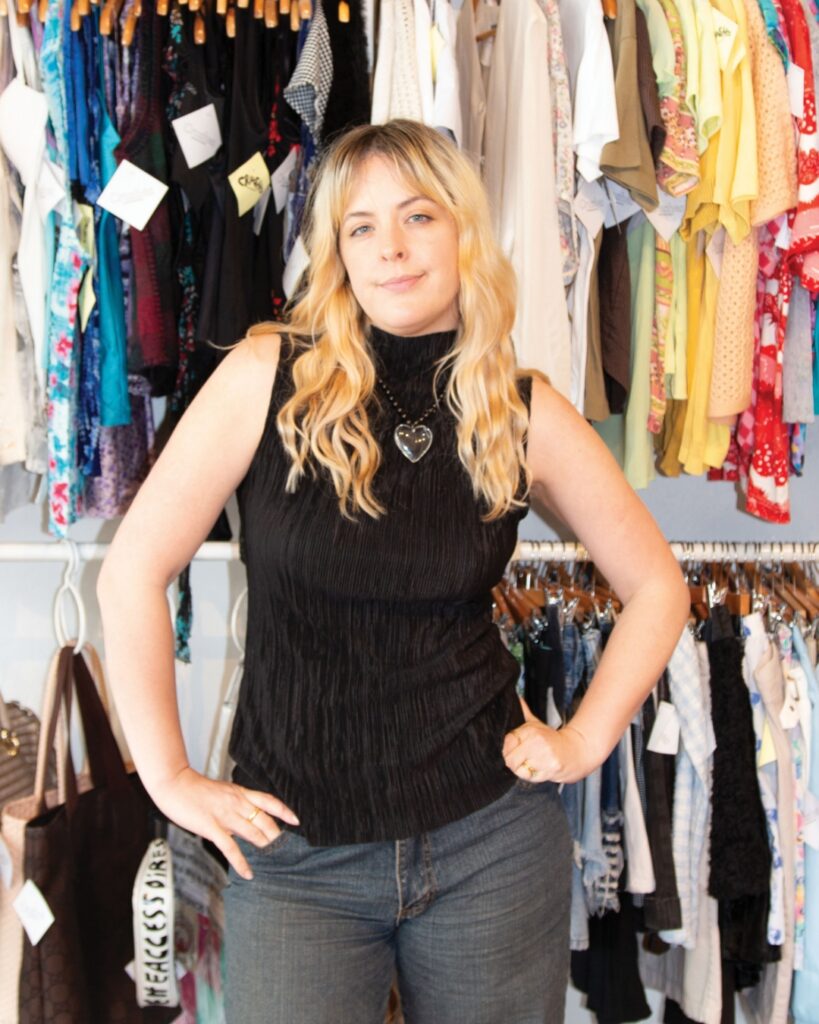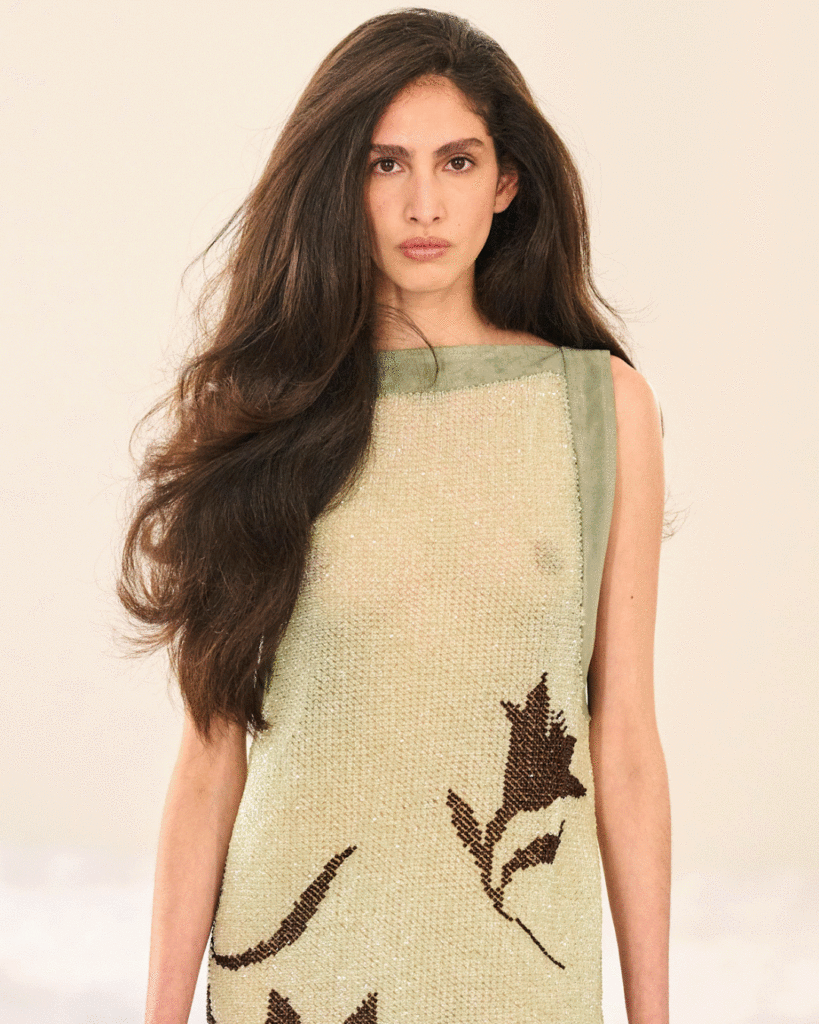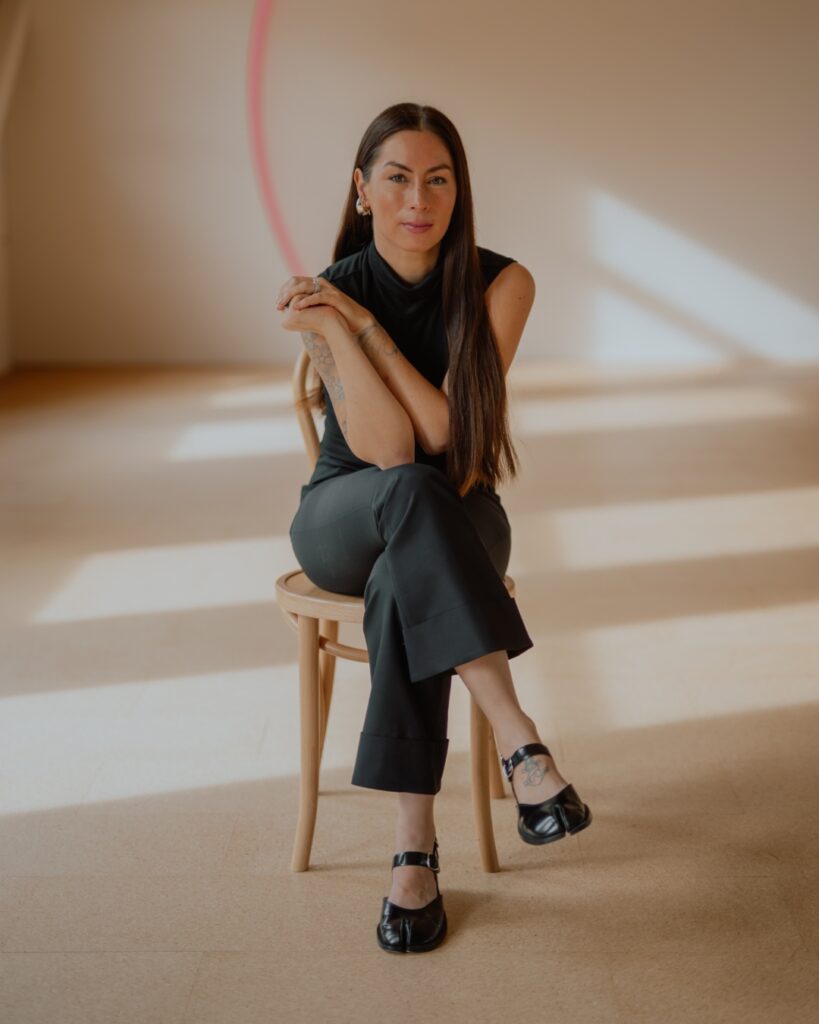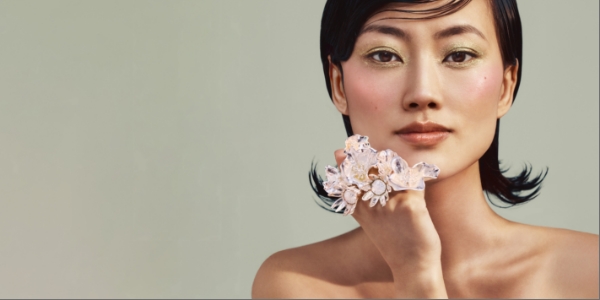This article was originally published in the Autumn 2021 issue of Fashion Quarterly.
Stacey O'Gorman

When Stacey O’Gorman decided to leave her successful baking business, she was at the top of her game professionally. Her business Meringue Girls (which she started as a 22-year-old) made eye-catching delectable sweet treats from her popular store in London’s Hackney. Premium department stores such as Harrods, Selfridges, and Fortnum & Mason stocked Meringue Girls’ creations and the business was taking orders from big-name fashion brands such as Louis Vuitton, Chanel, Stella McCartney, and Jimmy Choo. O’Gorman was meeting celebrity chefs like Jamie Oliver and Rick Stein, and she’d already ticked off one of her lifelong ambitions — to write a cookbook.
“It was so magical,” she says of the time. “It was my dream come true. And it was really fun for the first few years.”
But the dizzying heights and bright lights of success gradually dimmed as her role moved away from physically using her hands and baking until the wee hours of the morning, to managing sales and staff. And the unhappier she became, the more her discontentment manifested itself in her body and overall well-being.
“The final few years, year five and six [of the business], my health started to deteriorate. I was sick all the time. My hormonal health was debilitating,” she says. “I was exhausted. I was anxious. I was burnt out. I had hormonal acne all over my face. My body was screaming at me that something had to shift. So it wasn’t like, ‘Oh, I want to change careers now’; it was like my body was telling me, ‘I need to change because this is no longer in alignment’.”
Speaking from her home in west Auckland’s Titirangi, which is surrounded by lush green bush and views of the ocean, she sounds worlds away from that place in her life. O’Gorman tells me about how she took her time untangling herself from her business to ensure the best possible exit, while she looked at ways to help heal herself naturally.
“I started doing a lot of yoga and various therapies. I started looking into women’s work, and it was around that time I realised something needed to shift — in my work life and in my relationship life, in all areas of my life,” she says. “That was a natural progression. It wasn’t until I started cultivating a bit more self-awareness by looking a little deeper at all of those areas of my life that I realised I needed to make a shift.”
Now 31, O’Gorman has completely changed course and has her own business as a sought-after women’s well-being mentor and educator, working to reconnect women with their female alignment. In simpler terms, that means she helps move women from burnout and overwhelm into alignment and freedom. It wasn’t a planned career shift; rather, it all happened organically.
In 2017, she packed up her London life and travelled with her then-husband (they’ve since divorced) around Europe and then further afield to places like India, Nepal, Sri Lanka, Cambodia, and Thailand. During her travels, she sold her shares in her business and started getting deeper into working on herself.
“I was diving into lots of women’s work and work around sexuality and sensuality. I was doing it for myself, and it was a pretty natural progression to start to offer my learnings out.”
Of her new career, she says it’s been an ever-unfolding road.
“It was never like, ‘OK, I’m going to change careers now and go from being a meringue girl to a feminine coach’,” she explains. “It was a very natural transition that happened over a few years. I had the luxury of time after selling my business, and I needed that time to stop working, focus on my health, and rejuvenate my creativity in order for something to come through.”
O’Gorman is not alone in feeling discontentment in a career and looking for change. And the number could be growing. A survey conducted last year by financial comparison site Finder found that, out of 2001 Kiwis surveyed, 14 per cent wanted to change careers — that’s about one in seven people. While that may not seem like a huge number, it shows that jobseekers are rethinking their careers since the Covid-19 pandemic.
For many, changing careers might be an exciting prospect, but career change and development specialist Frances Harré advises looking before you leap.
“If you’re unhappy in your job, one of most fundamental things is learning about what others are doing. Look at how they changed their careers. Quite often, people say, ‘I don’t know what’s out there’; but we say, ‘Well, everything is out there. Start with getting clear about what you want’.”
She also recommends finding out what you’re deeply interested in and talking to people who are currently in the industry that you’re thinking of moving to. Mostly, though, when it comes to changing your career, her biggest tip is to listen to yourself.
“You need to find your own way. One of the key things is learning to listen to yourself, and trust yourself, and not let things like status or what will other people think of you get in the way,” she says. “I’ve had women who won’t leave certain professions because of the status, even though they are no longer engaged or inspired. Status and money can get in the way of you listening to yourself. Sometimes, looking for status is about not really valuing our own worth or looking for credibility outside of yourself rather than being true to yourself.”
India Leishman
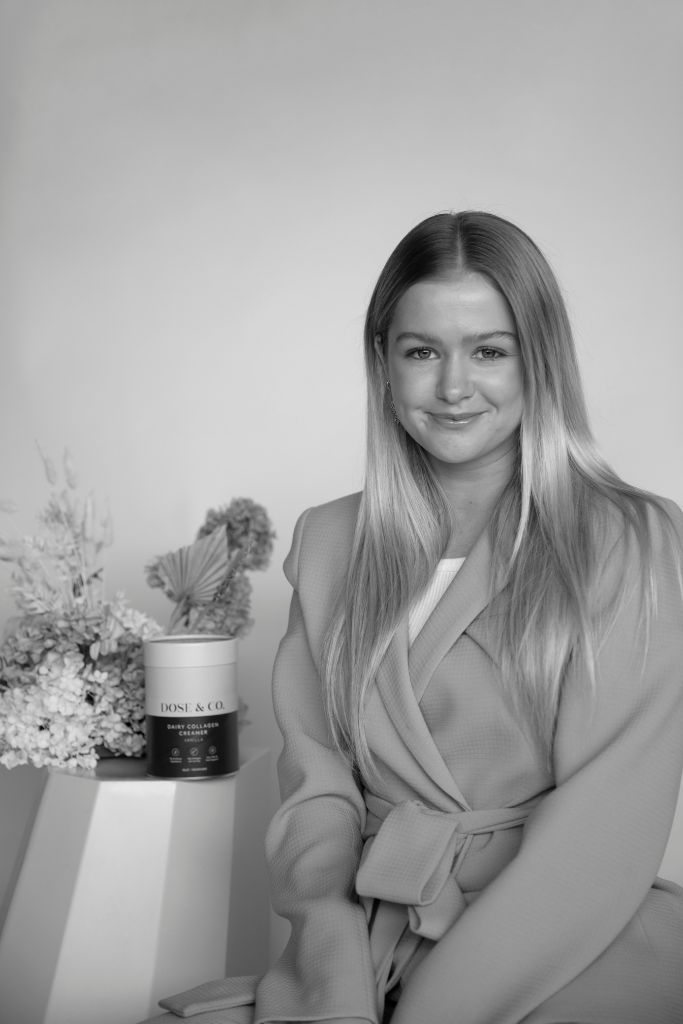
Getting a career coach was one of the most pivotal steps that marketing manager for Dose & Co. India Leishman took for herself when she was unhappy in her former job. The 26-year-old had been working in television for over four years, most recently as a presenter and reporter for Breakfast on TV1, and, although she initially loved its fast-paced nature, things were getting a little repetitive.
“Creatively, I felt a bit starved,” she admits. “Even if the news stories were different, it started to feel like I was churning out the same thing over and over again — just replacing words and different names.”
For Leishman, television wasn’t just a profession; it was in the blood. She’d wanted to work in the industry since she was a young girl and would do pretend interviews with her dad — well-known sports reporter and golf commentator Phillip Leishman. After her dad died in 2013, it seemed like a natural progression to follow in his footsteps. But it was more than that — she really wanted to work in broadcasting as a way to connect with her late father.
“I remember going in the first day and thinking Dad would be so proud,” she says.
But, like Stacey, the demanding hours and early mornings (think 3.30am starts) began to take their toll. Even so, she didn’t rush out and change jobs quickly.
“It was a long process,” she says. “I sat in that space of being very unhappy for about a year. I felt like I didn’t have a future at TVNZ that I wanted for myself or any real purpose from the work I was doing. It really impacted my life.
“I felt negative all the time, I wasn’t motivated or inspired, and I was always tired. And, to top it all off, the money wasn’t good either. I was in a really low, and possibly even verging on depressed, state, crying all the time. I was having conversations with Mum and my partner telling them how trapped I felt. I was exhausted and depleted and I knew it wasn’t right … but I didn’t know where the next step was.”
Enter her career coach, Bob Walker, who she calls her “saving grace”.
“Bob pulled me out of it all and played a very key role in my transition to a new career. In coaching sessions with him, I was asked what I loved and what I hated. What I wanted to do if there were no boundaries and what was important to me with my career in the long-term,” Leishman says.
“He helped me get my CV looking really sharp. We worked out that, based on my long-term goals, I needed to get into a role that was either sales or marketing focused, to get that commercial experience I was after. Once we had my CV and LinkedIn looking its best, Bob encouraged me to explore all my connections.”
Leishman did just that, sending the owner of Zuru Edge (Zuru’s consumer business) Nick Mowbray a message on LinkedIn asking if he had any marketing roles available. It was a confident move that paid off, and, last year, she landed herself a job with Zuru’s brand Dose & Co. — the collagen powder that now has Khloe Kardashian as its brand ambassador and co-owner. As soon as she started at Zuru Edge, she felt a shift in herself.
“I felt like it was a return to the old me,” she says. “It was the first time in such a long time that I felt like myself again. Hope had returned. I was excited and happy, capable and career-driven again. When I didn’t have that at TVNZ during the last chapter, I felt like I wasn’t myself. Walking through the doors to Zuru Edge on that first day, I thought, My god, here I am again. Hello, Indi, it’s been a while.”
Caitlin Marett
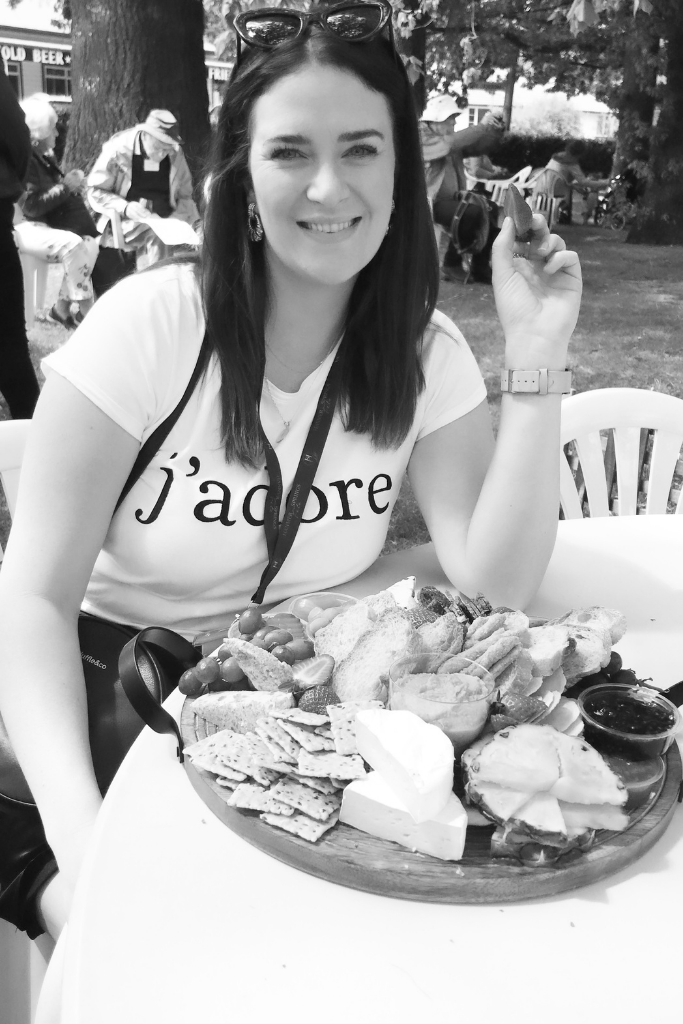
Former producer for ZM’s Fletch, Vaughan & Megan show, Caitlin Marett had initially loved her job, but, as the years went on, she also started to feel unfulfilled. She adored her team and felt “pretty bloody lucky” in her day-to-day role. But, in 2020, she decided to give it all up and become a nurse.
“I went to my volunteer jobs at Ronald McDonald House, Make a Wish, and Camp Quality, and that was my highlight of the week,” she says. “I felt like I was giving back. I just started to think, I have these two hands, and I’d love to be able to physically do something with them to help people.”
“When I was looking for something more fulfilling, all the jobs I wanted you had to be a qualified nurse. I was 29, about to turn 30. I didn’t have a partner or kids, and nothing was holding me back. So, I thought, If I’m ever going to do it, I have to do it now.”
From that point, things happened quickly. She ended up telling her team and her boss about her plans even before she got accepted into the Masters of Health Science Professional Practice (Nursing) course at Ara and the University of Canterbury.
“It was the hardest decision I ever had to make, leaving ZM,” she says. “I’m so grateful that I’m still in touch with them and talk to them most days. I didn’t want to lose that friendship.”
Now, Marett (who is also one-third of the popular podcast The Girls Uninterrupted and a marriage celebrant) has swapped the perceived glamour of the studio for the hospital, where she says that she recently spent three hours helping a man get phlegm out of his throat.
“I thought, I can do faeces, vomit, and blood, but phlegm is that one thing I find tough,” she says laughing. “I went on my break and saw Fletch, Vaughn, and Megan had just jumped out of a plane, and I thought, Wow, what a change of career. But I went back to that man, and he said, ‘Thank you so much’, and I knew he felt better because I was there. I know it sounds cliché[d], but nursing really fills up my cup!”
Not everyone understood Marett’s change of career. When she first told her mum, who is also a nurse, she was shocked. But once she saw her daughter’s passion for the profession, she understood.
“She was like, ‘This is your calling — I can finally see it’,” says Marett. “I have so many great conversations with my mum now. Sometimes I even teach her new things as well. I call her Senior Nurse Marett, and I’m Junior Nurse Marett!”
Not everyone was so supportive. What made Marett’s change of career difficult was the fact that she was in the public eye. And while the majority of people said, “Good on you”, others weren’t so positive.
“I had some people being a bit negative towards my decision, because they see it from the outside. They see me going from an amazing successful job that was all sparkles to cleaning up poo and vomit for a living,” she says.
“It was mostly people I didn’t know — some were nurses that have been in the profession for a long time and are jaded. I was never under the impression that it wasn’t going to be a stressful and challenging job, but recently I had a patient who was really unwell, and she asked for me. I went and held her hand and we sat there. There’s nothing that compares to that. There are times when I wonder if I’m doing the right thing and then something like that happens and I think, Absolutely!”



